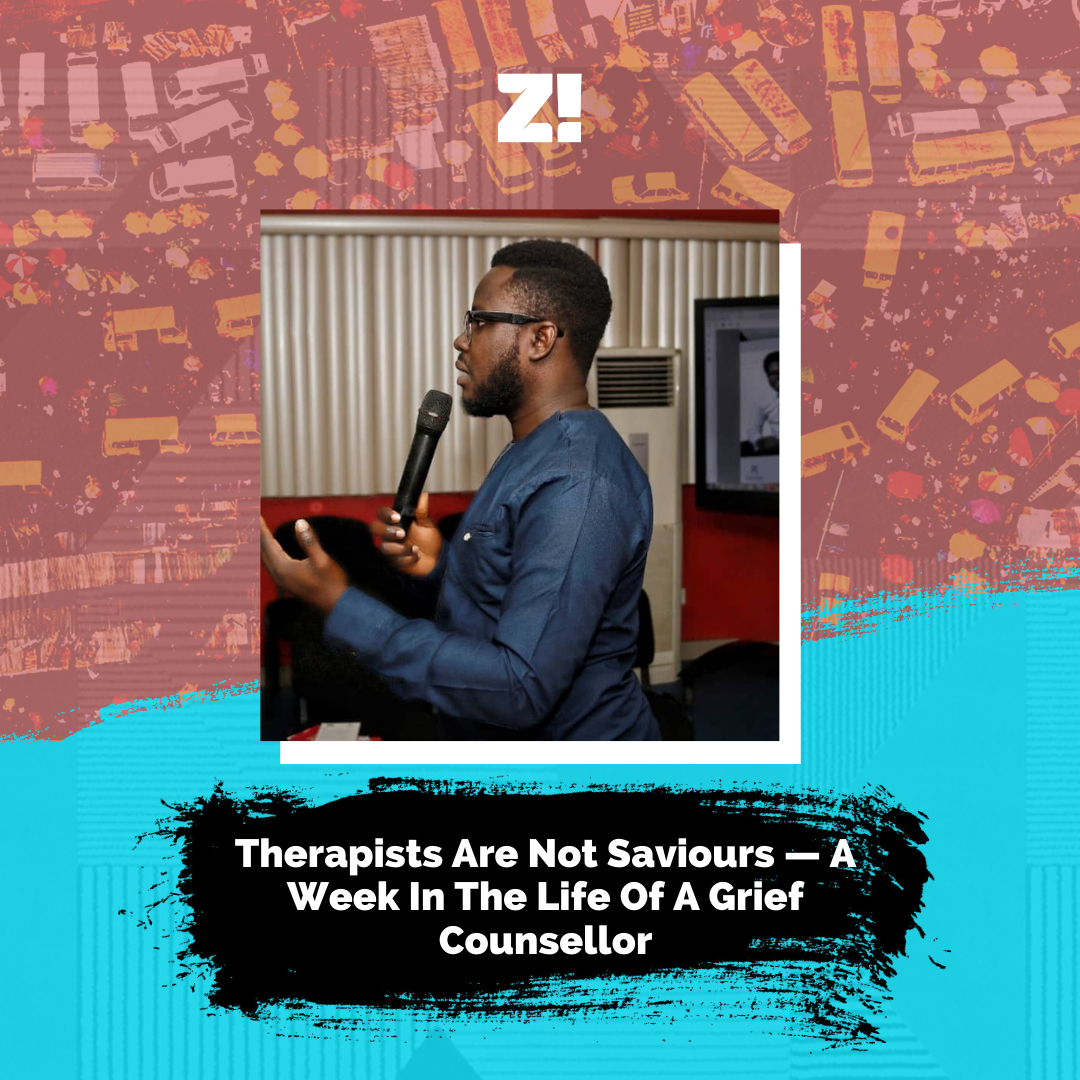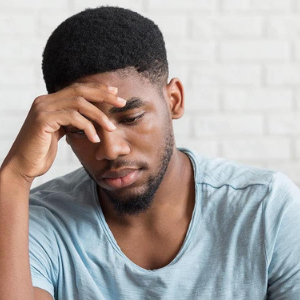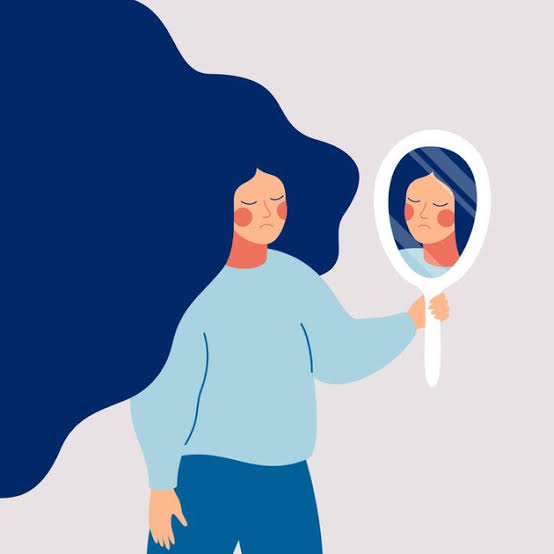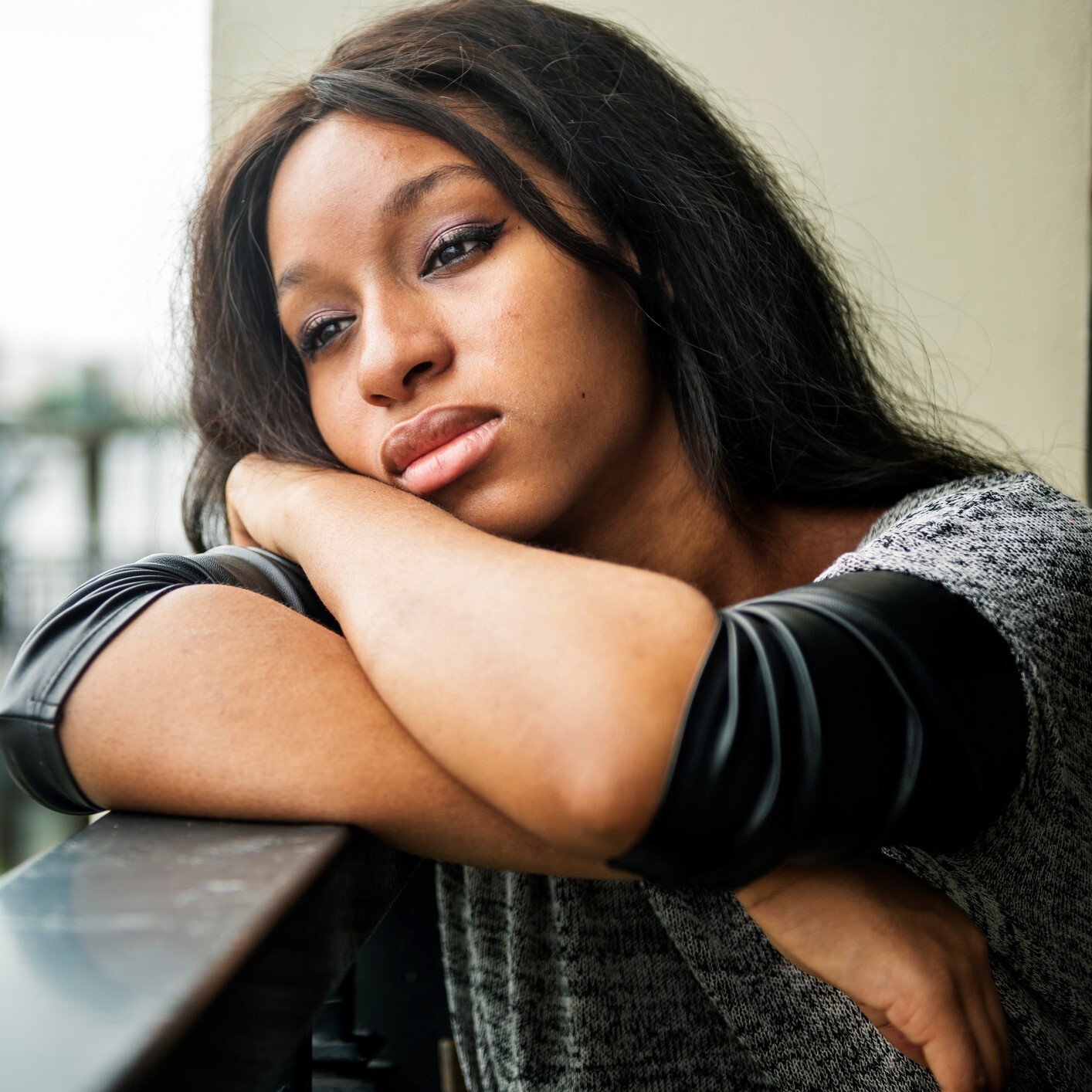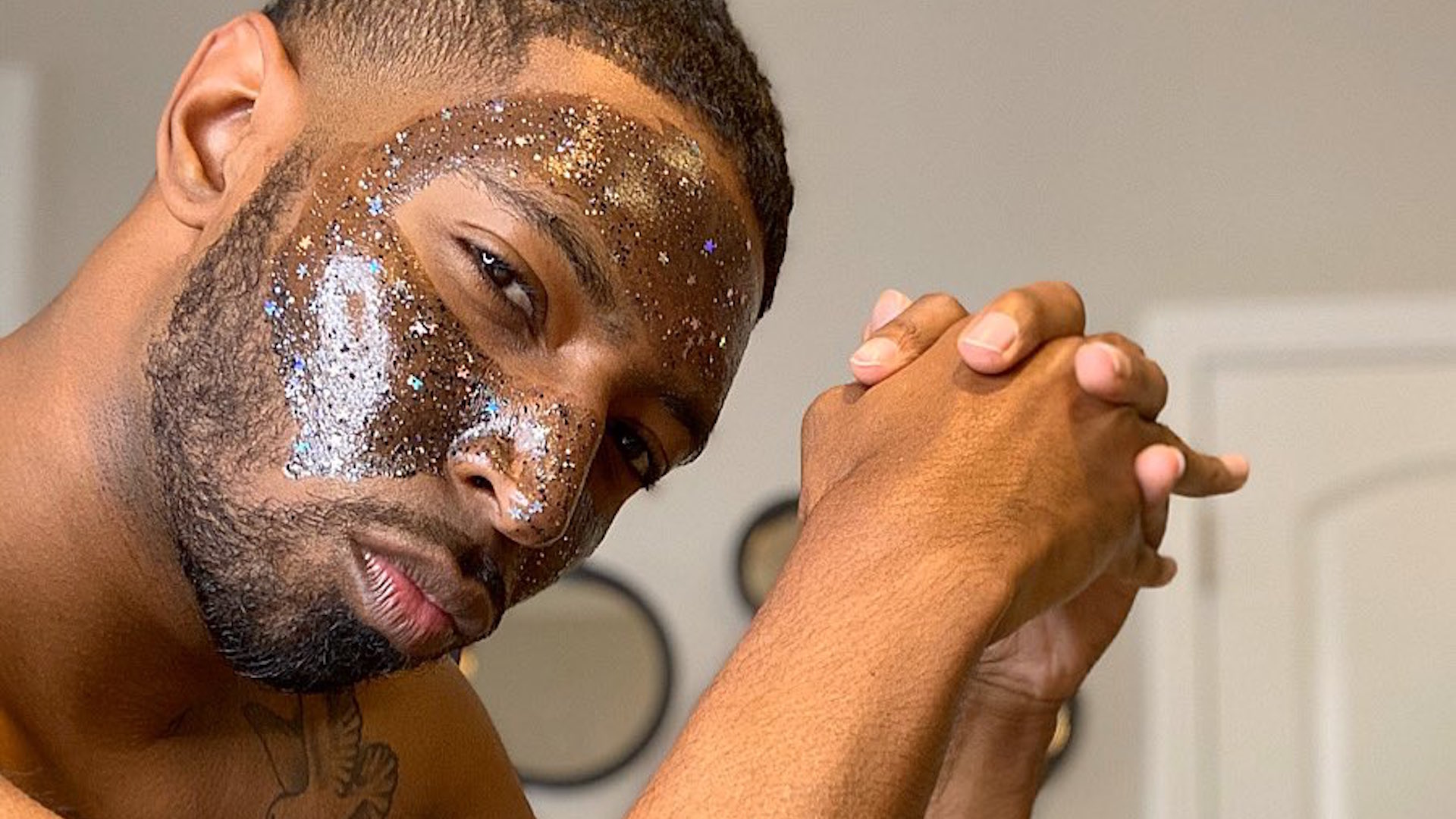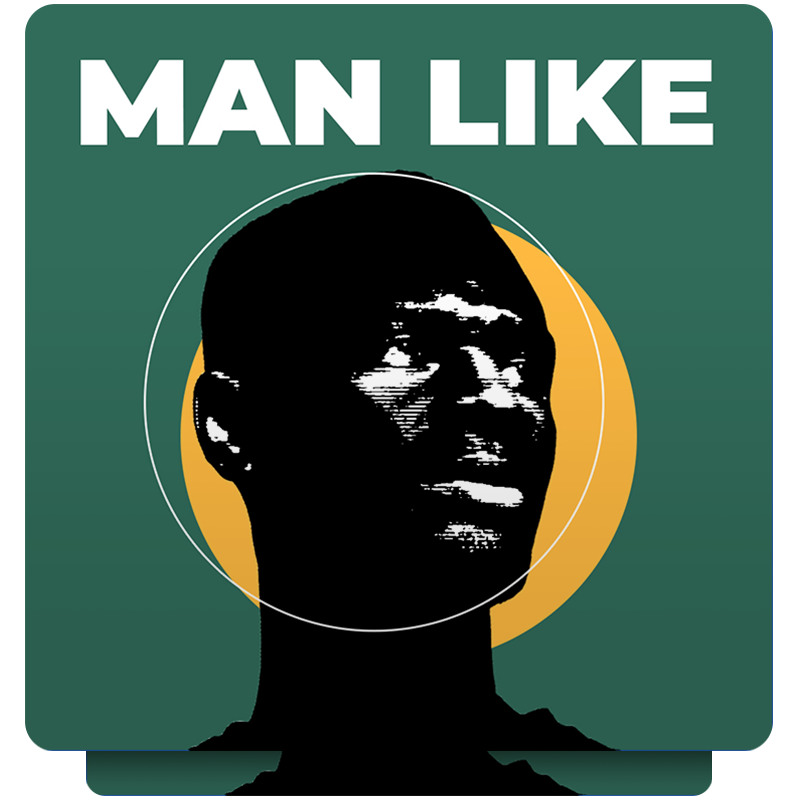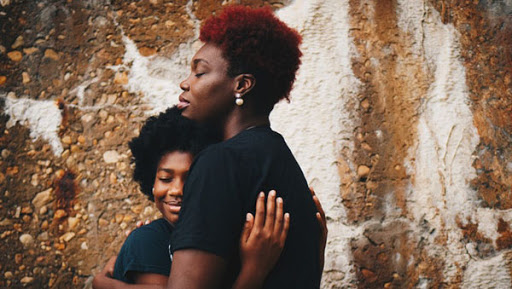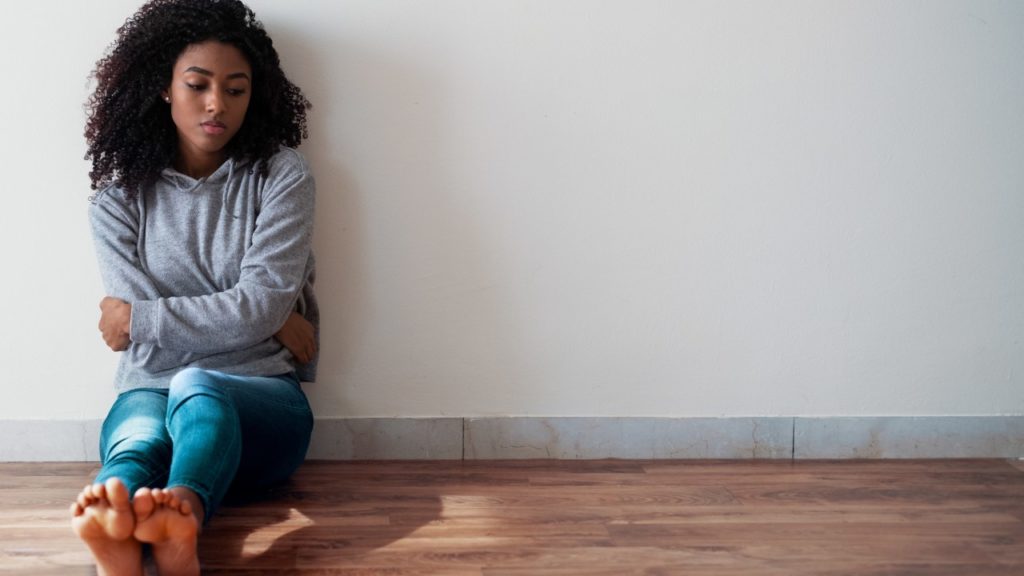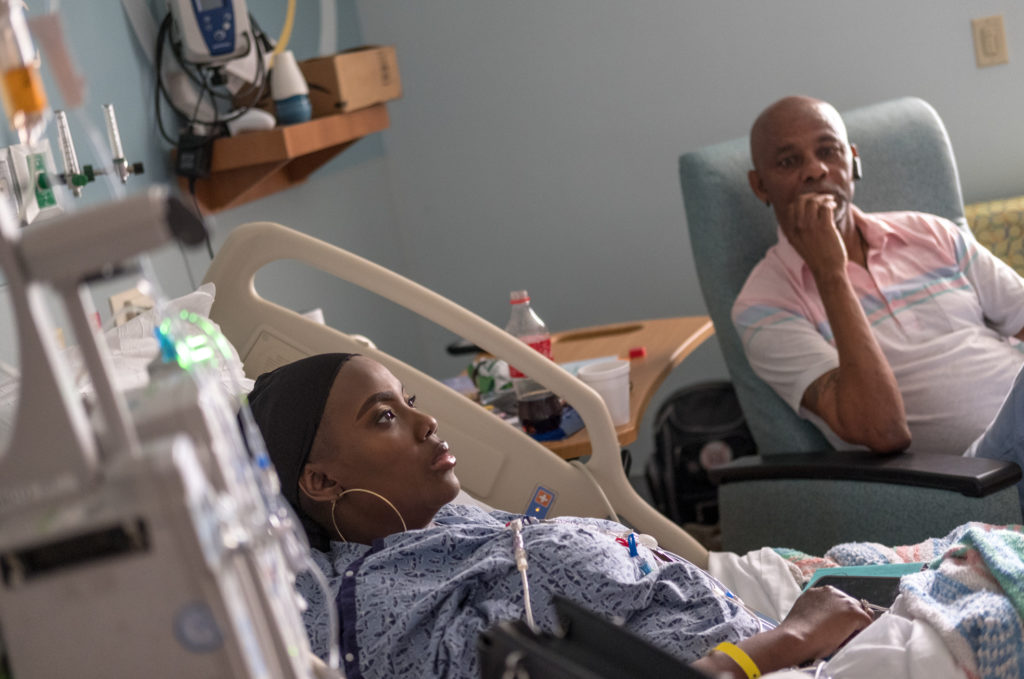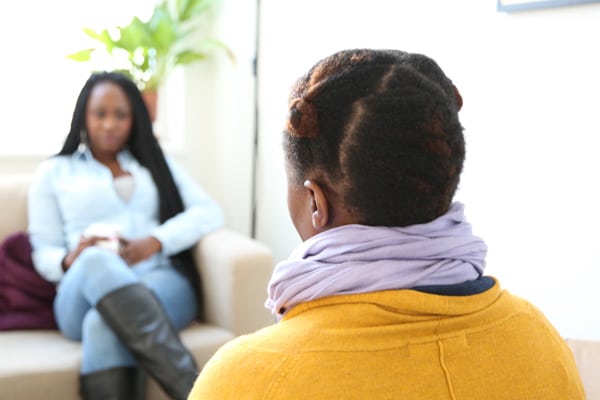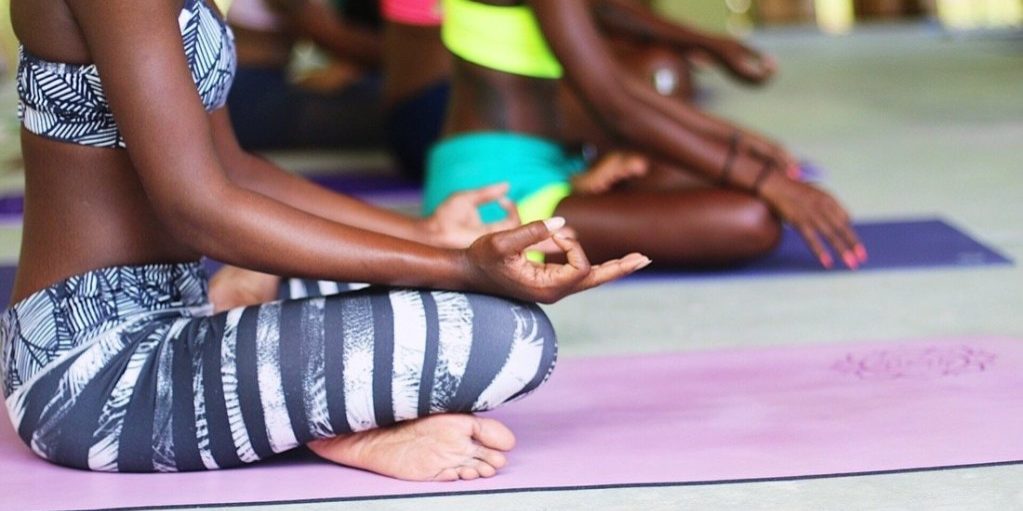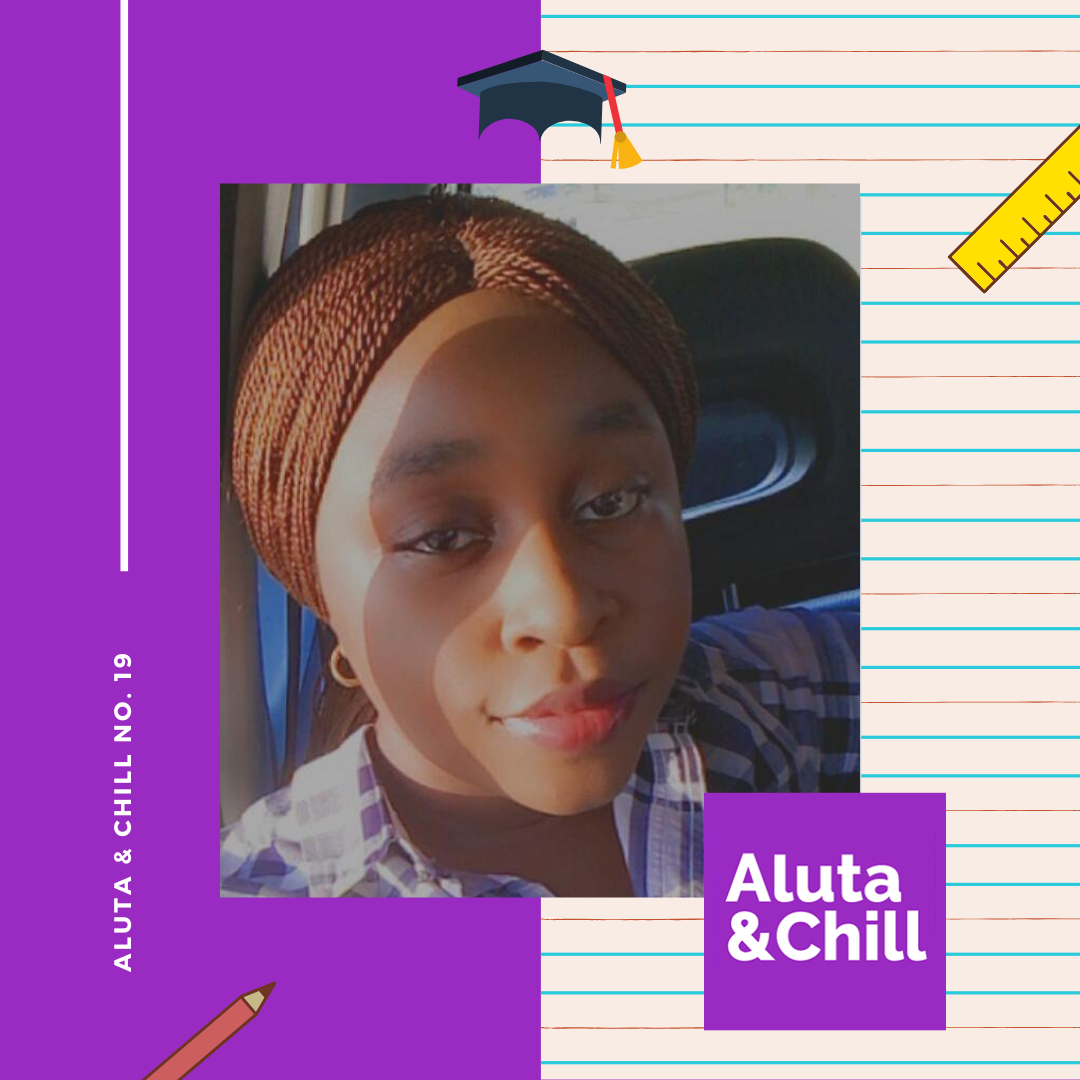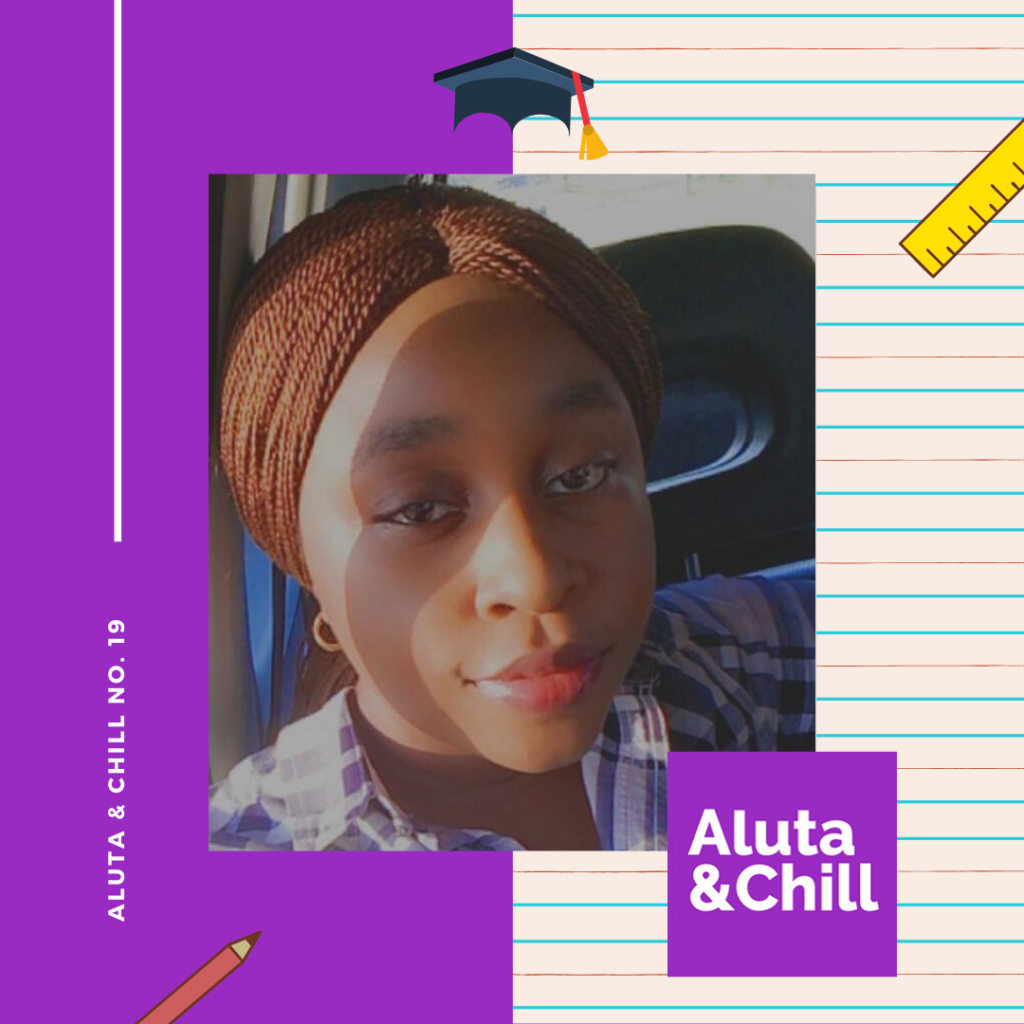A Week In The Life” is a weekly Zikoko series that explores the working-class struggles of Nigerians. It captures the very spirit of what it means to hustle in Nigeria and puts you in the shoes of the subject for a week
The subject of today’s “A Week In The Life” is a grief counsellor. Grief counsellors help people experiencing loss to examine the root cause of their emotions. Our subject tells us about how counsellors don’t have quick fixes for emotions, the tedium involved in his job, and why he shows up every day.
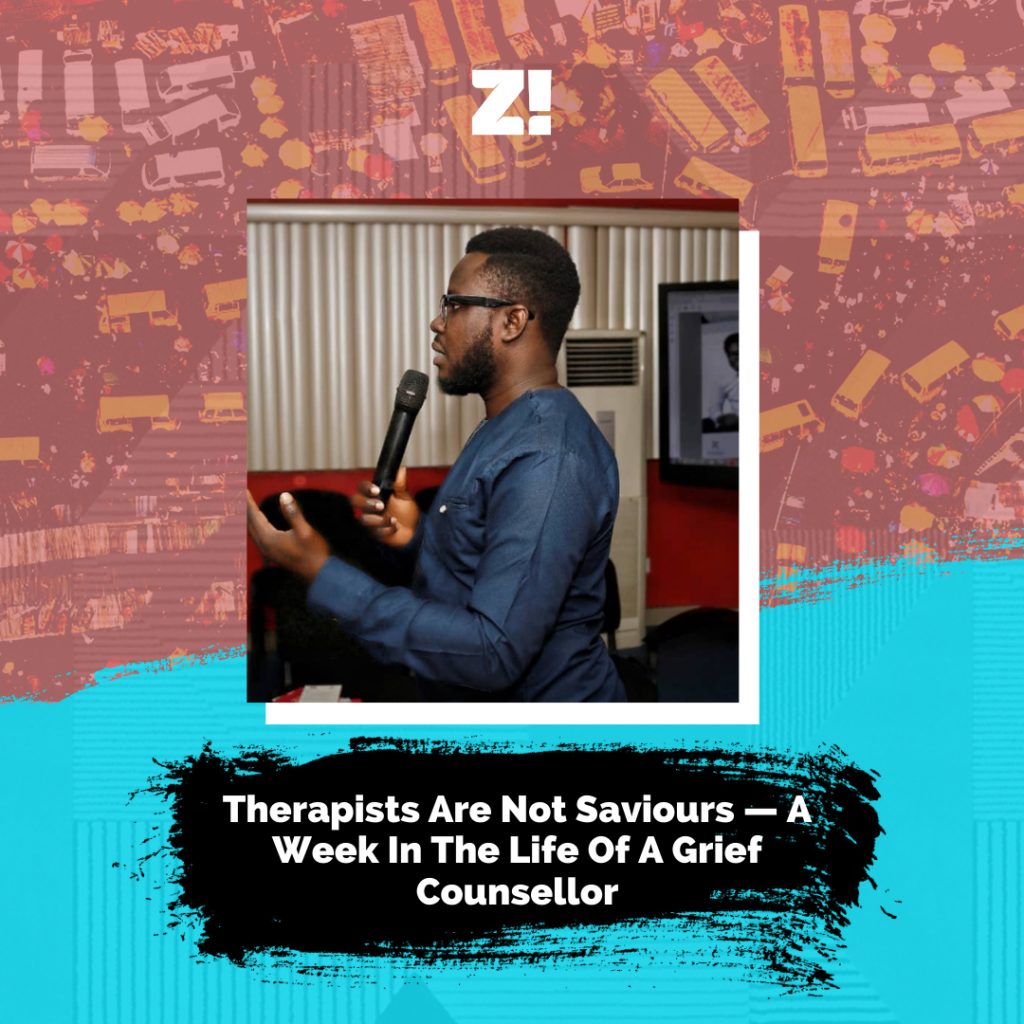
MONDAY:
The first thing I do when I get out of bed today is morning devotion. After which I have a bath. Then I prepare to start my day. A typical day for me involves either seeing patients with appointments or running operations at my volunteer job. Mondays are mostly for the operations role, and this involves following up with people, making sure tasks are done on schedule and generally being on top of things.
Mondays are also useful in helping me plan my week — I schedule patient appointments, follow up on patients progress and rest so I don’t burn out.
I’m pretty excited about today because I have plans to see a movie after work and to also try out a new food recipe from YouTube. I check my watch and realise that I’m running late. I turn off all the sockets and lights, take one last look to see I’m not forgetting anything and dash out of the door. Another Monday morning, another hustle begins.
TUESDAY:
People ask, “what is grief counselling?” and I tell them that it simply means taking a deep dive into a person’s life. Because of the many layers to grief — loss of a job, opportunity, failed business — counselling focuses not on the loss but on the quality of life before and after an incident.
I remember losing my mum in 2005 and not feeling anything in real-time. Like most people, I avoided processing the loss and immediately threw myself into schoolwork. It was easier to function well during the day because I had so many activities to distract me. However, alone with my thoughts at night, I cried. This routine went on for a year, then I lost my paternal grandmother that I was close to. Because I had lost two people and refused to process it in such a short period of time, I switched off from being a jovial person and became reclusive and almost antisocial.
I continued to go through life as a recluse until I started living with a psychiatrist friend. He noticed that I didn’t mix with other flatmates or interact with anyone; I’d just come out to eat before dashing back into my room. One day he sat me down and asked me, “How are you?” I answered that I was fine. Then he said, “How are you really doing?”
Such a simple question helped me unravel a lot of emotions I had suppressed and avoided facing.
My friend eventually came to the realisation that even though I had suffered losses in 2005 and 2006, I was still grieving in 2013. Because I didn’t properly grieve, I was living the life of another person for seven to eight years of my life.
I eventually got therapy and dealt with my emotions.
That event showed me that grief causes people to spiral and can manifest as depression, panic attacks or anxiety. Grief counselling involves reviewing the before and after effect of an event and examining how it has affected a patient’s relationship with people, their life and their self-esteem. The knowledge is then used in developing a strategy for both patient and counsellor to walk through the loss together.
This is the pitch I give all my patients when they come to me.
I’m tired from running around yesterday, so I’m going to cancel my appointments and spend the day recharging.
WEDNESDAY:
I did sleep hypnosis for a patient today and I almost “died.” I was so tired after the session that I needed a colleague to pick me up. One of the challenges of this job is that it takes an emotional toll on you. Constantly listening to grief stories is a weight that we must bear, and that’s why grief therapists seek out ways to offload. We do this by either spacing therapy appointments, asking for help when we’re stumped, or in my case, surfing the web and making podcasts.
Another challenge grief counsellors face is that people want quick fixes for their emotions. I tell them that emotions take time to resolve and involves the active participation of the person feeling them. If the patient is not ready to put in the effort to examine their feelings, then the therapist will never get to the root of the issue.
Patient participation ensures that patients who recover are clear-eyed about the steps that got them out of a funk. Knowing the difference between the steps they took and how a therapist helped prevents patients from saying: “It’s God,” or “It was my therapist that helped me get through my grief.”
I’ve had clients cancel on me because they either didn’t feel better after one session or they didn’t want to do the soul searching assignments I gave them. I’ll still not stop preaching that there’s no magic formula; therapists are not saviours. Psychologists are not saviours. Psychiatrists are not gods. We don’t have the answers and we need patients’ participation in therapy. Without effort on the part of our patients, there’s not a lot we can do.
THURSDAY:
A lot of Nigerians approach grief like something that goes away unattended to. Only very few people come seeking help after losing a loved one. There are some people who consider break downs as not being emotionally strong. I encourage my patients to cry, especially if it helps them get through a difficult situation.
I generally advise people who are grieving not to blame themselves, especially if they think their action or inaction was somehow responsible for the death. The next step is to encourage them to have conversations with people so they can sit with their emotions. Conversations help to examine their thoughts about an issue and to also observe how thoughts affect feelings and how feelings influence behaviour. It then becomes “easy” for the therapist to hold their hands as they break thoughts, and ultimately, their behaviour in the aftermath of a traumatic event.
This method doesn’t always work, especially on days like today where I’m dealing with a difficult patient. We’re not making any progress in her sessions because she’s not ready to examine the root of her grief. She has been missing sessions, ignoring assignments and generally been uncooperative.
I’ve decided to refer her to another colleague.
A major downside to this job is that because the service is intangible, it’s difficult for people to appreciate the value. If it was a tangible product, I’m sure that more people would cooperate. Regardless of the challenges, we move.
FRIDAY:
The plan for today is simple: make podcasts and upload videos to my Youtube channel after seeing a few patients. I’ve been creating content around grief and mental health since as far back as 2009. I envision a reality where there’s so much accessible knowledge that anyone can hold a basic mental health conversation. As a society, we need to be able to talk about how we feel without being made to feel like we’re worthless or we’ve committed a crime.
We need more people to be in touch with their emotions. My perfect future is one where your excuse for not knowing about mental health won’t be that you’ve not heard or you didn’t have resources. This is what gets me out of bed every morning to repeat the hustle cycle over and over again.
Thank God the weekend is here because, on Monday, we go again.
Check back every Tuesday by 9 am for more “A Week In The Life ” goodness, and if you would like to be featured or you know anyone who fits the profile, fill this form.
[donation]

